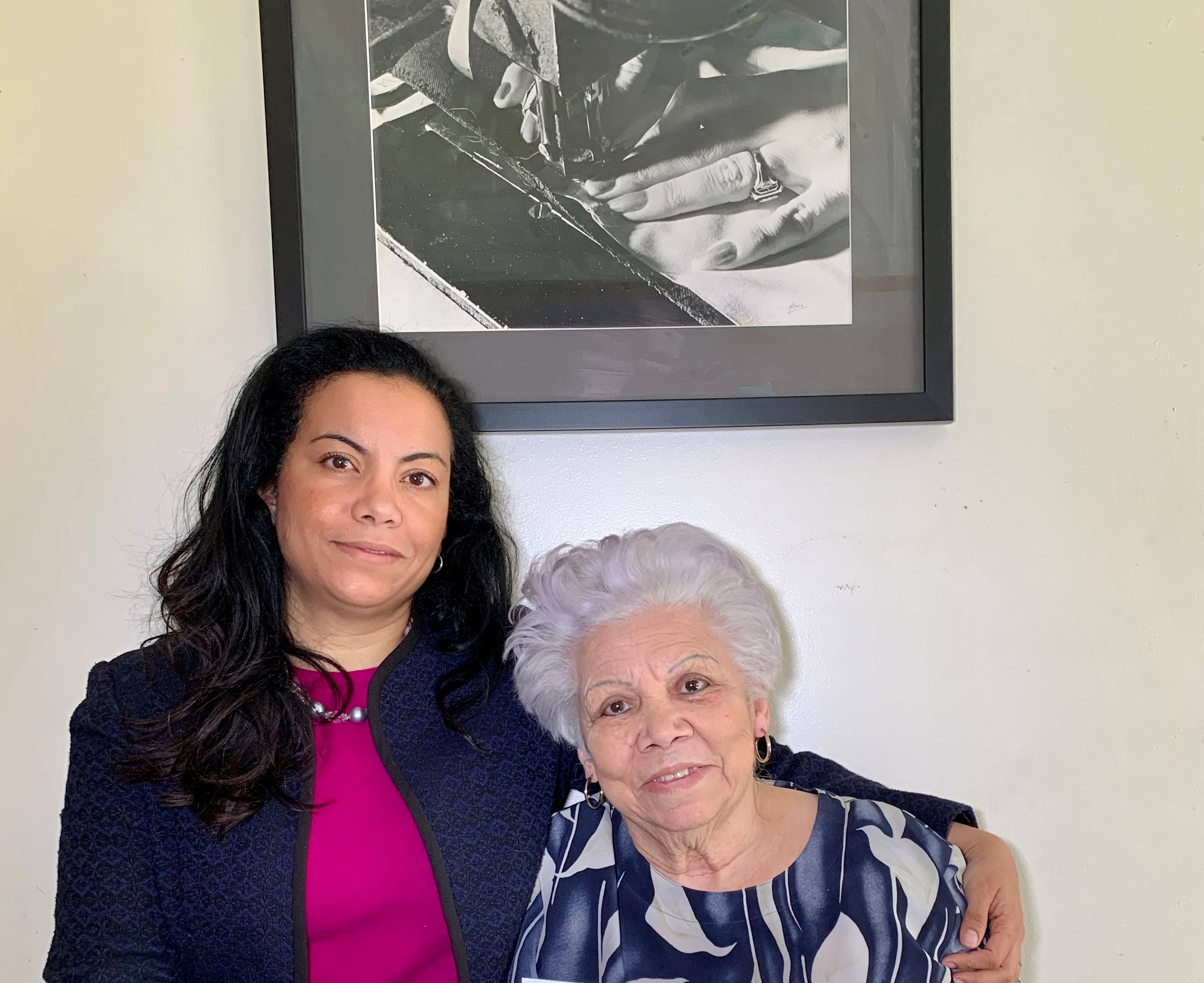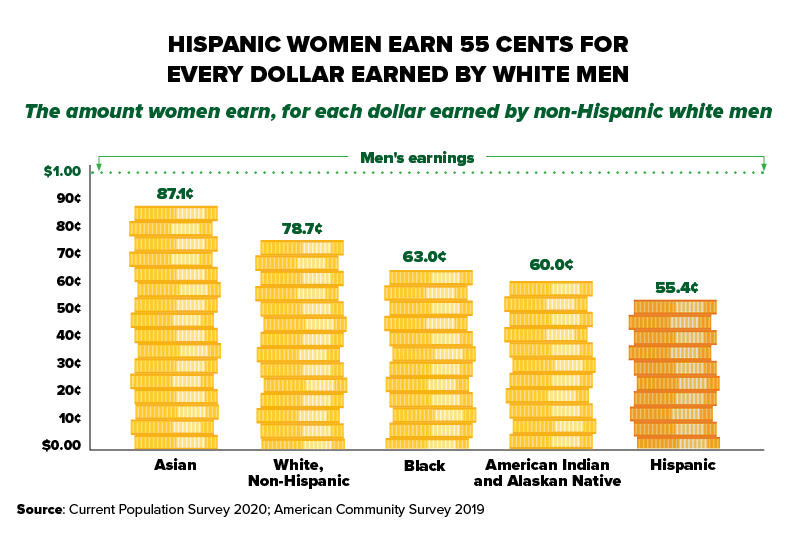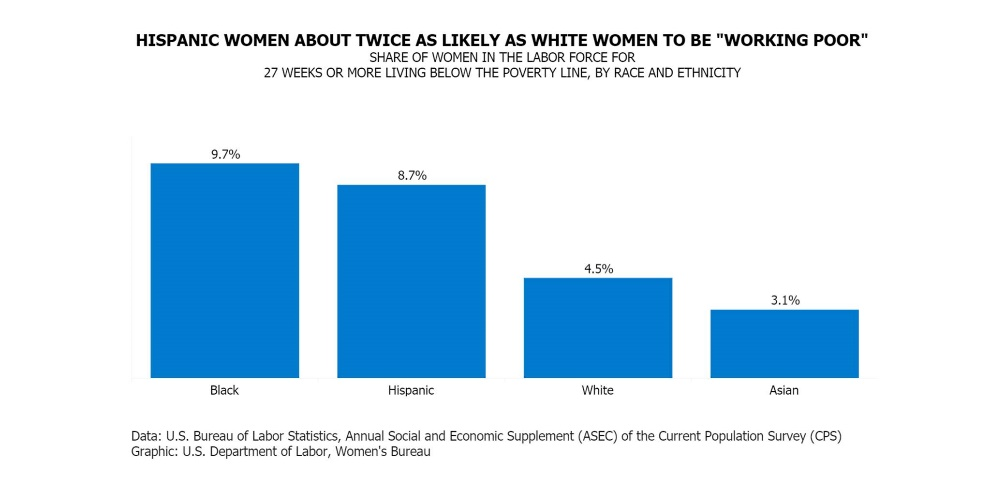
Half a century after the passage of the landmark Civil Rights Act of 1964, economic inequality in the United States continues to be inextricably linked to both race and gender. Due to occupational segregation, workplace harassment and discrimination, as well as a lack of workplace protections, the groups facing the greatest risk of poverty and lowest wages continue to include Latinas and African American women. I am painfully aware that many of the obstacles my own mother faced as a Colombian American seamstress – discrimination in the workplace, sexual harassment and low wage work – continue to plague Latina workers today.
The Biden-Harris administration is seeking greater equity for our daughters and granddaughters. In recognition of Hispanic Heritage Month, the Women’s Bureau is honoring the contributions Latinas have made to America’s labor force, and we’re recommitting ourselves to the ongoing fight to improve economic and employment outcomes for the country’s largest ethnic minority.
Gaining a deeper understanding of the experience of Latina workers is critical as we Build Back Better with greater equity and inclusion. The pandemic has disproportionately affected Latinas, who are overrepresented in food preparation and service jobs as well as the leisure and hospitality sector.
Here are some key statistics describing the state of Latina workers.
Latinas make up a growing share of the U.S. workforce.
The number of Latinas in the labor force has jumped to 12.5 million, surpassing black women. Now, they account for 16% of the female labor force, and that figure is projected to grow dramatically, according to the Bureau of Labor Statistics. Latinas of Mexican descent comprise the largest share of those in the workforce, followed by those who identify as Puerto Rican or Cuban.
Labor force participation of Latinas, especially Latina moms, is rising.
Labor force participation of Latinas historically lagged that of other women, but it is now 56.4%, in line with rates for all women. About two-thirds of employed Latinas work full-time. Labor force participation among Latina moms has also risen and now stands at 62.8%, compared with 71.2% for all moms.
Despite dramatic employment losses early in the pandemic, Latinas have recovered many of the jobs lost.
Latinas were hit particularly hard near the start of the pandemic, experiencing a 23% decline in employment. These losses were likely driven in part by the concentration of Latinas in industries such as leisure and hospitality. While employment is still lower than it was pre-pandemic, many Latinas have regained their jobs.

While Latinas comprise a growing share of the U.S. workforce, their wages lag behind.
For every dollar a non-Latino white man makes, Hispanic women make only 55 cents – the largest wage gap experienced by any major racial or ethnic group in the United States.

Despite overall improvements in terms of poverty, Latinas are among the most likely to be ‘working poor.’
Nearly 1 in 10 (8.7%) Latinas working 27 hours or more a week are living below the poverty line – almost twice the rate of non-Hispanic white women (4.5%). At the same time, among all Latinos, poverty has declined markedly but it still remains high at 15.7%. The story is the same for Latino families headed by a single mom – the poverty rate today is half of what it was in the early 1980s, yet this rate (28.7%) still remains among the highest experienced by any major racial or ethnic group.

Occupational segregation, a lack of representation in high wage work and an overrepresentation in low wage work has relegated many Latinas to a chronic state of working poverty. If we are to break the cycle for this generation of Latinas, as well as those to come, we must implement strategies that hardwire equity for women, particularly women of color and new Americans. At the Women’s Bureau, that means supporting policies and programs that ensure opportunities for participation in non-traditional occupations, to uplift low-wage workers, and create opportunities that will set young Latinas on the path to meaningful careers. Juntas, podemos. Si se puede!
Analilia Mejia is the deputy director of the U.S. Department of Labor’s Women’s Bureau. Follow the bureau on Twitter: @WB_DOL

 U.S. Department of Labor Blog
U.S. Department of Labor Blog